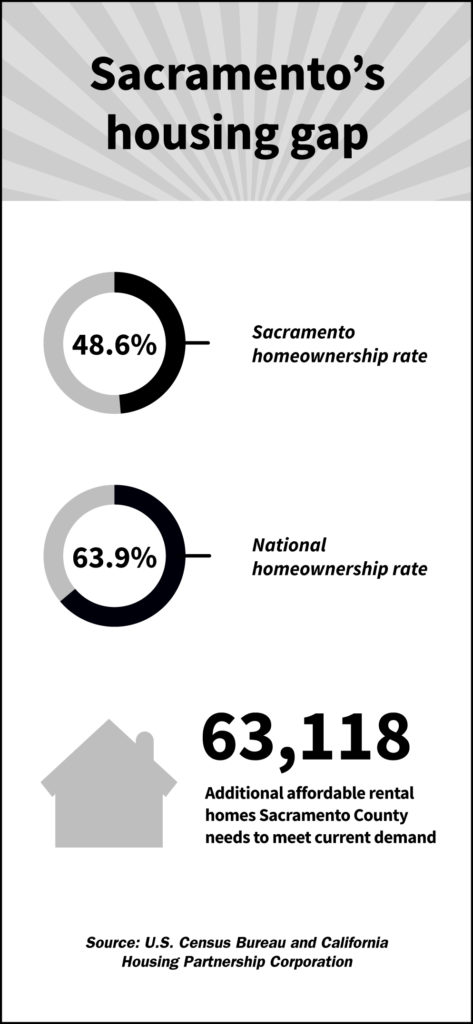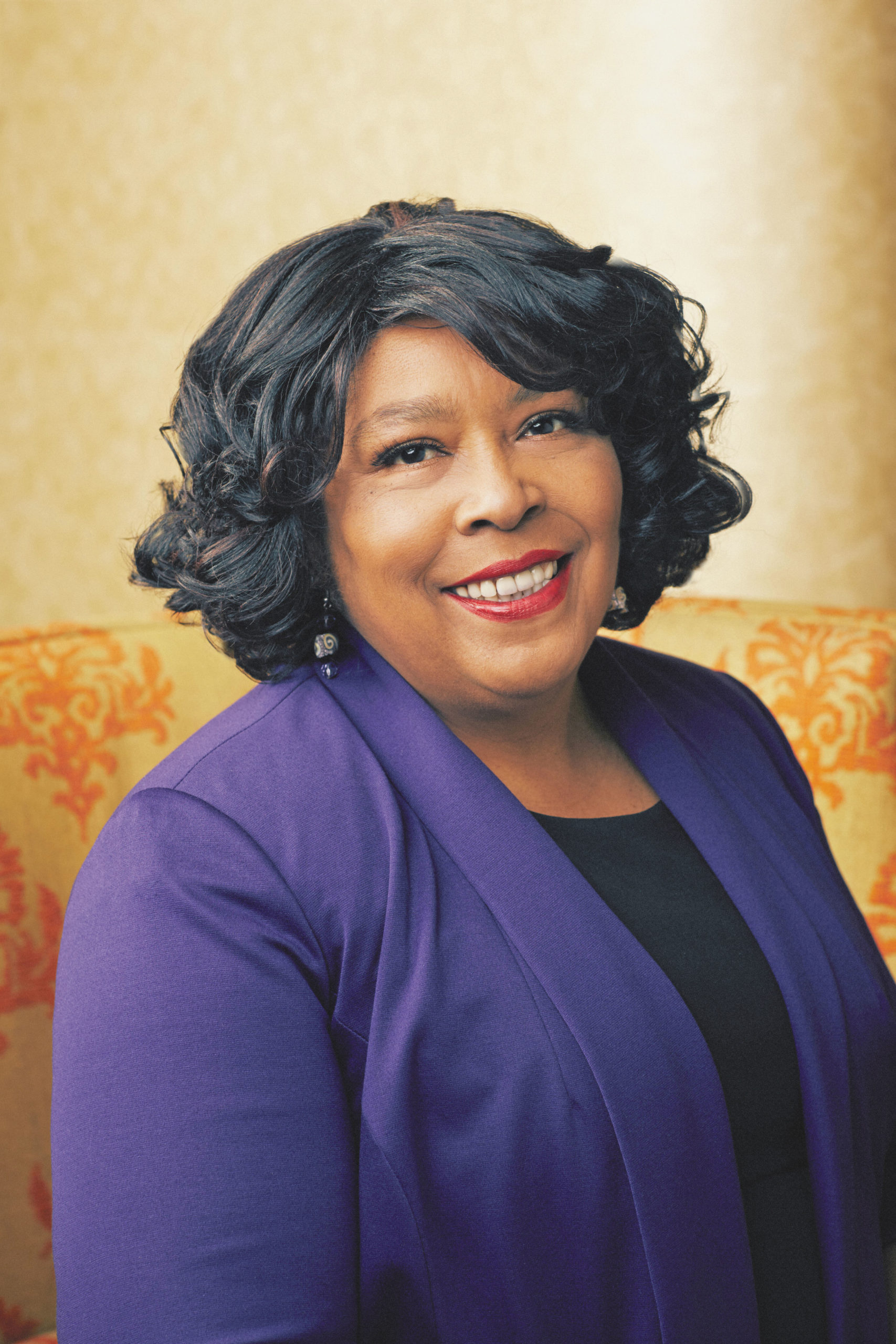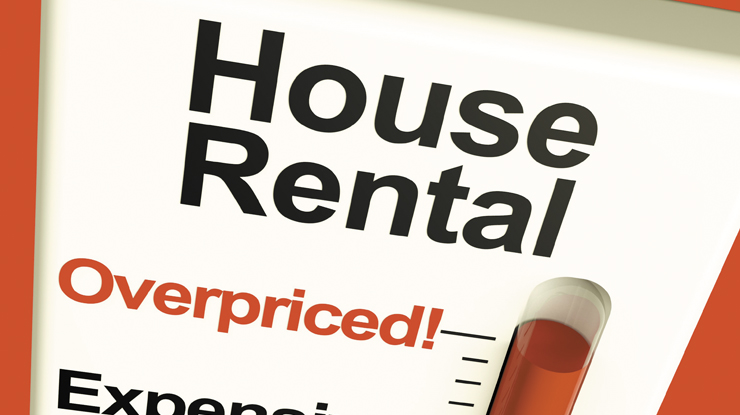Renters’ rights important part of this fight
Sacramento used to be a bargain. People moved here from all over because our city was considered an affordable place to live and work. We were known as the most diverse and the most integrated city in the country.
People still want to move here, but that affordability factor has disappeared.
Rents have been going up faster here than almost anywhere in the country. And most Sacramento residents are renters; less than half own their own home – far below the national average.
Dream of owning a home? In 2018, Sacramento ranked among the top 10 worst cities for first-time home-buyers. Sacramento needs to build at least 60,000 more affordable homes just for the people who currently live here.
Housing is a human right. It definitely affects how we live, not just where we live. Affordable housing is key to ending poverty for all Californians. We need to keep the affordable housing we have, and find ways to build a lot more.
Why should a union worry about the cost of housing? People have to be able to afford to live where they work. Our members are concerned about the environment and being able to live close to work. They care about rising homelessness, and their neighbors’ suffering that comes with it. And their own suffering, as state workers have been priced out of their apartments and forced to live in their cars.
Renting should not mean living in deplorable conditions because advocating for something better means losing your home.
Unfortunately, that is all too often the case, as it was with a worker named Mari. Pregnant, she was concerned about the living conditions in her two-bedroom apartment. She complained to the landlord about rats gnawing the wood and leaving droppings under the kitchen sink. She complained about mold on the walls and the ceiling. She complained about an infestation of cockroaches. She complained about no heat in the winter, and no air in the summer.
And all this for the low price of $1,255. In the 18 months Mari lived there, her landlord raised the rent $200, a 20% increase.
What did she get for her extra money and complaints? At seven months pregnant, Mari got evicted.
Fear of eviction keeps many tenants from speaking up. But if we’re going to solve California’s housing crisis, homelessness and poverty, we can’t keep quiet.
Just because you are a renter, you should not have to face being displaced from your home, your neighborhood, or your kids from their school. You should not be stuck with an abuser because you can’t afford to move out or afford a place of your own. You should not suffer severe sunburn or die of dehydration and thirst because you don’t have a place to live.
For all of these reasons, SEIU Local 1000 is part of a local coalition, Housing 4 Sacramento, and we advocate for state-wide housing solutions as well.
This year, we fought for – and won – rent stabilization policies to keep landlords from jacking up rents more than 5% plus inflation. We fought for – and won – just cause eviction protections so a landlord can only evict you under very limited circumstances. And we fought for – and won – a rent registry where all landlord actions including rent increases and evictions must be logged and reported, so we can track the trends and challenges as well as insure the law is enforced.
In Sacramento, the City Council adopted the Tenant Protection and Relief Act, which we supported. Our Housing 4 Sacramento coalition had worked on getting rent control and just cause eviction passed for three years. This act, which went into effect Sept. 12, is a step towards helping tenants like Mari and countless other residents who are squeezed by rising rents and landlords who ignore residents’ concerns.
Stay tuned here for many more policy fights and volunteer opportunities to partner with us on ways to redistribute housing wealth and insure housing affordability for all.


president,
SEIU Local 1000
PHOTO COURTESY OF SEIU local 1000































Be the first to comment on "Yvonne R. Walker: Affordable housing key to ending poverty"